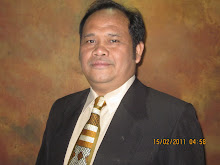Indonesia's Future Economy
Tuesday, May 7, 2024
Indonesia's future economy is poised for significant growth and transformation, with the resource sector playing a crucial role. As one of the world's largest archipelagic nations, Indonesia boasts abundant natural resources, including oil, natural gas, coal, minerals, and a vast expanse of forests. Historically, these sectors have been major contributors to the country's economy, generating significant revenue and employment opportunities.
However, Indonesia is increasingly recognizing the need to diversify its economy and reduce its dependence on resource extraction. While the resource sector will likely continue to play a vital role in the economy for the foreseeable future, there is a growing emphasis on sustainable development and leveraging these resources more efficiently and responsibly.
Here are some key aspects of Indonesia's future economy and the role of resource sectors:
Diversification: Indonesia aims to diversify its economy by promoting other sectors such as manufacturing, tourism, technology, and services. This diversification strategy is intended to reduce the economy's vulnerability to fluctuations in commodity prices and global demand for resources.
Sustainable Development: There's an increasing focus on sustainable development practices within the resource sectors. This includes efforts to minimize environmental degradation, promote renewable energy sources, and adopt responsible mining practices. Initiatives like the Sustainable Development Goals (SDGs) provide a framework for guiding these efforts.
Infrastructure Development: The development of infrastructure is essential for unlocking the full potential of Indonesia's resource sectors. Investments in transportation, energy infrastructure, and telecommunications are critical for improving accessibility to remote resource-rich areas and facilitating efficient resource extraction and distribution.
Technology and Innovation: Embracing technological advancements and innovation is crucial for enhancing productivity and competitiveness in the resource sectors. Technologies like automation, artificial intelligence, and remote sensing can improve efficiency, safety, and environmental sustainability in mining, oil, and gas exploration, and forestry operations.
Value-Added Processing: Instead of solely exporting raw materials, there's a push to promote value-added processing within Indonesia. This involves developing downstream industries to refine and process raw materials domestically, thereby capturing more value and creating higher-skilled jobs.
Government Policies and Regulations: The Indonesian government plays a central role in shaping the future of the resource sectors through policies, regulations, and incentives. It needs to strike a balance between attracting investment, ensuring environmental protection, and maximizing benefits for local communities.
International Partnerships: Collaboration with international partners and investors can bring in expertise, technology, and capital to support the development of Indonesia's resource sectors. However, it's essential to negotiate fair deals that prioritize the long-term interests of Indonesia and its people.
In summary, while the resource sectors will remain significant drivers of Indonesia's economy, the country is actively pursuing strategies to diversify its economy, promote sustainability, and maximize the value derived from its abundant natural resources. Balancing economic development with environmental and social concerns will be crucial for ensuring a prosperous and equitable future for Indonesia.

0 comments:
Post a Comment